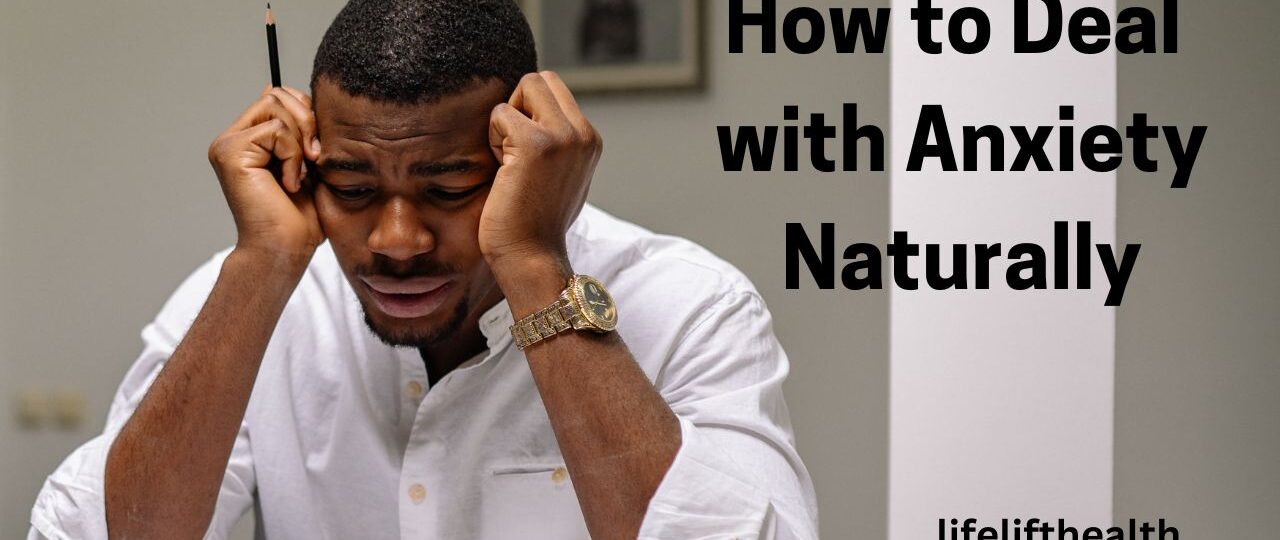Introduction
Anxiety is a common experience, affecting millions worldwide and often stemming from the demands and pressures of modern life. While occasional anxiety is a normal part of life, chronic anxiety can take a toll on our mental and physical well-being. But not all anxiety management has to involve medications. Instead, natural methods provide a healthier way to cope, often empowering individuals to regain a sense of control over their mental health. Let’s dive into effective, natural ways to deal with anxiety and discover strategies that could be life-changing.
Identifying Anxiety Triggers
One of the first steps in managing anxiety naturally is to understand what’s causing it. Triggers vary from person to person and can include factors like financial stress, work pressure, or even social situations. Learning to identify your unique triggers can make it easier to anticipate and manage anxiety when it arises.
The Role of Lifestyle in Anxiety Management
Our daily choices—from the foods we eat to how we spend our free time—have a profound effect on mental health. Just as physical health depends on lifestyle, so too does mental health.
Nutritional Changes to Support Calmness
Your diet has a direct impact on your mental well-being. Foods rich in magnesium, zinc, and B vitamins, like leafy greens, nuts, and whole grains, can help ease anxiety. Meanwhile, it’s wise to limit stimulants like caffeine and sugar, as these can heighten feelings of anxiety and disrupt sleep.
The Power of Physical Exercise
Exercise is one of the most potent natural remedies for anxiety. Physical activity releases endorphins—often referred to as “happy hormones”—which elevate mood and reduce stress. Regular exercise not only improves physical health but also provides a positive outlet for stress.

Gentle Exercises to Reduce Anxiety
If high-intensity workouts aren’t for you, consider gentle exercises like yoga, Tai Chi, or even walking in nature. These activities provide a calming effect, allowing the mind to relax while the body engages in soothing movement.
The Impact of Sleep on Anxiety
Sleep is crucial for mental resilience, and a lack of it can exacerbate anxiety. Poor sleep leaves the mind vulnerable to stress and can lead to a vicious cycle where anxiety disrupts sleep, which in turn worsens anxiety.
Natural Remedies to Aid Sleep
For those struggling with sleep, natural aids like chamomile tea or lavender essential oil can create a calming pre-sleep environment. Establishing a bedtime routine with relaxation techniques, like reading or listening to soft music, can also signal to the body that it’s time to wind down.
Breathing and Relaxation Techniques
Breathing exercises are simple yet powerful tools for reducing anxiety. By focusing on deep, slow breaths, you can activate the body’s relaxation response, easing tension and reducing the mental fog associated with anxiety.
Popular Relaxation Techniques
Guided meditation, mindfulness, and progressive muscle relaxation are among the best techniques for managing anxiety. These practices encourage you to stay present, observe your thoughts without judgment, and reduce physical tension.
Building a Support System
A strong support system can make a world of difference when managing anxiety. Talking to loved ones about your feelings or joining a support group can help you feel understood and remind you that you’re not alone.
Practicing Mindfulness and Staying Present
Mindfulness is the art of staying present and accepting each moment as it comes. When anxiety arises, mindfulness can help by grounding you in the present rather than allowing your thoughts to spiral into worries about the future.
Mindfulness Meditation Tips for Beginners
If you’re new to mindfulness, start with short, guided sessions. Over time, you can extend the length and practice independently. Consistency is key, as mindfulness grows stronger the more you practice.
Reframing Negative Thoughts
Anxiety often feeds off negative thought patterns. By learning to identify and reframe these thoughts, you can regain control. Instead of spiraling into “what if” scenarios, challenge these thoughts by focusing on realistic outcomes.

Journaling and Expressive Writing
Writing can be incredibly therapeutic. When anxiety builds up, jotting down your thoughts allows you to release them in a healthy way. Journal prompts like “What am I feeling right now?” or “What’s causing my stress?” can help organize and release anxious thoughts.
Engaging in Creative Outlets
Creativity has a unique way of calming the mind. Whether it’s painting, playing an instrument, or gardening, creative hobbies give you an outlet to express yourself, channel your energy, and take a mental break from stress.
Conclusion
Managing anxiety naturally is not only possible but also empowering. By implementing these practices consistently, you can build resilience, reduce stress, and create a more balanced approach to life. Remember, anxiety management is a journey, and being patient with yourself is essential.
FAQs
- What are quick ways to calm down when feeling anxious?
Try deep breathing, grounding exercises, or taking a short walk outside to quickly relieve anxiety. - How often should I practice mindfulness to see results?
Consistent daily practice, even if only for a few minutes, can show noticeable results over time. - Can dietary changes really impact anxiety levels?
Yes, certain foods support mental health, while others like caffeine or sugar may increase anxiety symptoms. - Is it possible to reduce anxiety without medication?
Many people find success with lifestyle changes, mindfulness, and support systems, though individual needs vary. - What if natural methods don’t work for me?
It’s okay to seek additional support; consult a healthcare provider to explore other options that suit your needs.

